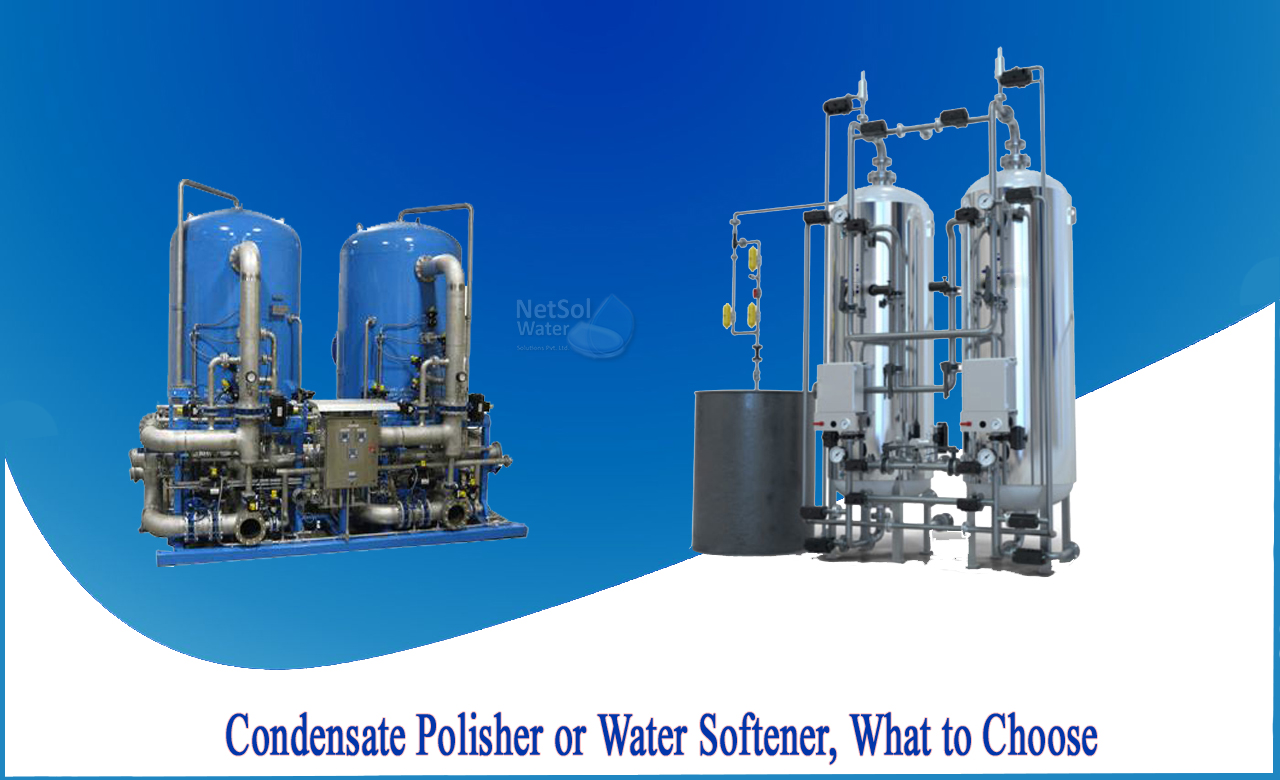WHAT DO YOU MEAN BY WATER SOFTENER?
A water softener is a purification system that works to eliminate high calcium and magnesium concentrations that cause hard water. When water passes through a Water Softener, the system filters out these hard water minerals, and the softened water exits the system to flow through plumbing.
WHAT DO YOU MEAN BY CONDENSATE POLISHER?
A condensate polisher is an instrument that filters water condensed from steam during the steam cycle, such as in a conventional or nuclear power plant (powdered resin or deep bed system). It is quite often filled with polymer resins, which are used to eliminate or exchange ions in order to keep the purity of the condensate at or near that of distilled water.
Condensate polishers are useful in systems that transmit or transform thermal energy by boiling and condensing water. Trace amounts of minerals or other pollutants are eliminated using technology similar to a water softener before these contaminations becomes concentrated enough to cause problems by depositing minerals inside pipes or precision-engineered devices including boilers, steam generators, heat exchangers, steam turbines, cooling towers, and condensers.
Many businesses are constantly striving to run their operations in the most energy-efficient and cost-effective manner possible. Investing in a condensate polisher is one of the simplest ways to achieve energy efficiency and money savings for those whose operations involve a low-pressure boiler system environment.
Differentiate between Condensate polisher and Water Softener?
Cold water softeners are used to treat boiler water makeup in almost every boiler plant. The use of a condensate polisher, which treats condensate return for reuse as boiler feedwater, is less common. A water softener and a condensate polisher are not the same thing.
>MATERIALS OF CONSTRUCTION:
Water softeners are built with epoxy-coated tanks or poly-lined FRP tanks, cast iron or PVC valves, and black iron or PVC piping. The standard condensate polisher systems are entirely made of stainless steel. This all-stainless steel construction is the best material choice for long-term safety.
>INSTALLATION:
In order to meet the ASME/water manufacturer's quality specifications, a water softener is typically installed upfront with the boiler system. When steam traps, condensate piping, and condensate receivers age and form deposits (such as iron, copper, and magnesium), thermal resistance decreases, a condensate polisher is often added to an existing boiler system.
>TEMPERATURE:
Condensate polishers are designed to operate at significantly higher temperatures and flow rates. Whereas water softeners operate at temperatures below 80 degrees Fahrenheit, polishers operate at temperatures well above 120 degrees Fahrenheit.
Because of the higher temperature and flow rate, a polisher can function as an ion exchange device as well as a filter, removing copper and iron oxides that cause scale build-up. A water softener system, which acts only as an ion exchange device with limited filtering capabilities, cannot remove oxide.
>SURFACE PREPARATION:
Passivation is applied to condensate polishers. All of our welded stainless-steel piping and tanks are passivated after fabrication to further improve the corrosion resistance of our stainless-steel components. For the longest condensate polisher life, this is an expensive, multi-step process that includes bead blasting and passivation.
Netsol Water is Greater Noida-based leading water & wastewater treatment plant manufacturer. We are industry's most demanding company based on client review and work quality. We are known as best commercial RO plant manufacturers, industrial RO plant manufacturer, sewage treatment plant manufacturer, Water Softener Plant Manufacturers and effluent treatment plant manufacturers. Apart from this 24x7 customer support is our USP. Call on +91-9650608473, or write us at enquiry@netsolwater.com for any support, inquiry or product-purchase related query.



